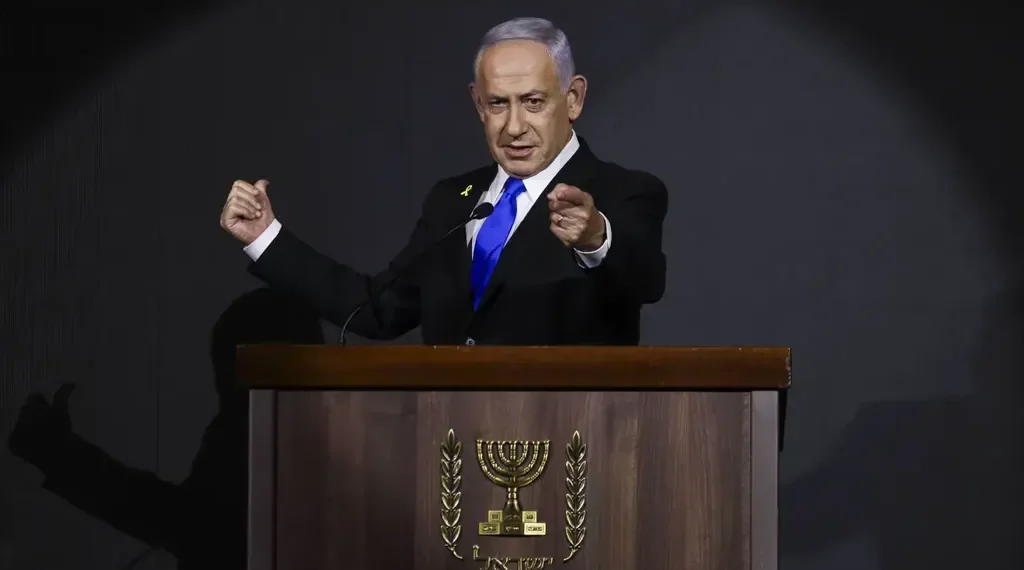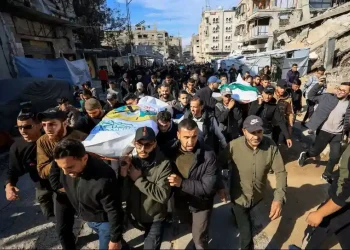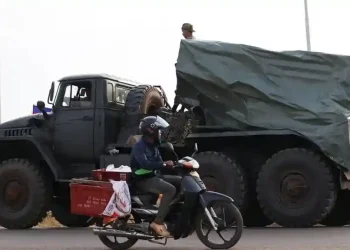Israeli Officials Advocate “Voluntary Migration” for Gaza Residents Amid War
Published Time: 08-16-2025, 16:00
Amid the ongoing Gaza conflict, Israeli leaders have increasingly backed the concept of relocating civilians from the territory, citing humanitarian reasons and security concerns. The plan, originally proposed by former U.S. President Donald Trump, has drawn international scrutiny and sparked fears among Palestinians who see it as a potential forcible displacement.
As Israel expands its military operations into remaining areas of Gaza, the discussion over civilian relocation has intensified, highlighting deep divisions between government plans and Palestinian perspectives.
Israel Frames Relocation as Voluntary and Humanitarian
Israeli Prime Minister Benjamin Netanyahu and other officials have presented the proposed relocation of Gaza residents as a measure designed to protect civilians from ongoing conflict. Netanyahu has repeatedly described it as a voluntary option that would allow Palestinians to leave war zones while receiving humanitarian support.
In a March 30 Cabinet meeting, Netanyahu emphasized that the plan was not secretive. “Hamas will lay down its weapons. Its leaders will be allowed to leave. We will see to the general security in the Gaza Strip and will allow the realization of the Trump plan for voluntary migration,” he said.
Defense Minister Israel Katz also outlined operational steps to facilitate the relocation. In a February 6 post on X (formerly Twitter), Katz stated, “I have instructed the [Israeli military] to prepare a plan that will allow any resident of Gaza who wishes to leave to do so, to any country willing to receive them. … The plan will include exit options via land crossings, as well as special arrangements for departure by sea and air.”
Netanyahu Details Relocation Plans in Public Addresses
In a May 21 public address, Netanyahu described the creation of a “sterile zone” in southern Gaza. He explained that civilians would be evacuated from active combat zones into this area, which would be free of Hamas presence and supplied with humanitarian aid.
Netanyahu further stated, “I am ready to end the war — according to clear conditions that will ensure the security of Israel. All of the hostages will return home. Hamas will lay down its weapons, leave power, its leadership, whoever is left, will be exiled from the Strip, Gaza will be completely demilitarized, and we will carry out the Trump plan… The residents of Gaza who wish to leave — will be able to leave.”
In an August 12 interview with Israeli media, he reiterated that civilians should be allowed to leave combat areas: “Give them the opportunity to leave! First, from combat zones, and also from the Strip if they want. We are not pushing them out but allowing them to leave.”
Palestinian Concerns Over Displacement
Many Palestinians view these relocation proposals with suspicion, arguing that the offer is not genuinely voluntary. Families in Gaza have endured extensive destruction and displacement during the 22-month conflict, leaving limited options for safe relocation.
“This is our land, there is no other place for us to go,” said Ismail Zaydah, whose family has stayed in Gaza City despite the destruction of their neighborhood. “We are not surrendering. We were born here, and here we die.”
Human rights organizations and the international community have also raised alarms. They argue that moving civilians out of their homeland under the control of an occupying power could constitute a violation of international law and amount to forcible expulsion.
International Implications and Challenges
Israel has reportedly approached several African countries regarding potential resettlement options for Gaza civilians. However, many of these nations face their own challenges, including internal conflicts and famine risks, complicating the prospect of large-scale relocation.
The issue remains deeply divisive. Supporters argue that voluntary migration could save lives and protect civilians from active combat zones. Critics warn that it risks creating long-term displacement, undermining Palestinian rights, and setting a precedent for forced population transfers in conflict zones.
Escalation of Gaza Conflict Fuels Urgency
The relocation discussion is gaining urgency as Israeli forces intensify operations in Gaza’s last remaining regions. Large numbers of Palestinians are once again fleeing, compounding humanitarian pressures in surrounding areas.
International organizations continue to monitor the situation, emphasizing the need for civilian protection, adherence to international law, and access to humanitarian aid for those displaced.
Balancing Security and Humanitarian Needs
Israeli leaders stress that the relocation plan is intended to ensure national security while minimizing civilian casualties. Netanyahu and Katz maintain that the initiative is voluntary and framed around humanitarian assistance.
Nonetheless, Palestinians and human rights advocates caution that the reality on the ground may differ, noting the limited options for safe relocation and the potential for long-term statelessness.
Conclusion
As the Gaza conflict evolves, the debate over civilian relocation underscores the complexities of war, human rights, and international diplomacy. While Israeli leaders emphasize voluntary migration as a protective measure, Palestinians and global rights groups warn of coercion, potential legal violations, and the profound human impact of leaving their homeland.
This article was rewritten by JournosNews.com based on verified reporting from trusted sources. The content has been independently reviewed, fact-checked, and edited for accuracy, neutrality, tone, and global readability in accordance with Google News and AdSense standards.
All opinions, quotes, or statements from contributors, experts, or sourced organizations do not necessarily reflect the views of JournosNews.com. JournosNews.com maintains full editorial independence from any external funders, sponsors, or organizations.
Stay informed with JournosNews.com — your trusted source for verified global reporting and in-depth analysis. Follow us on Google News, BlueSky, and X for real-time updates.














